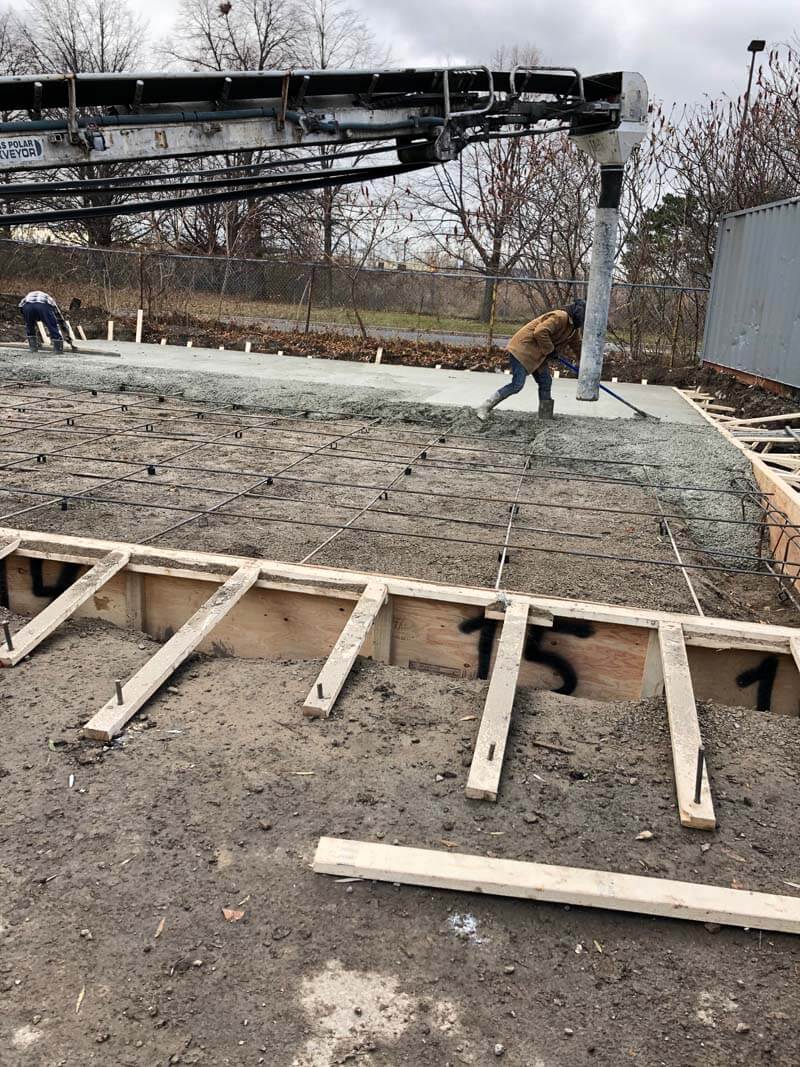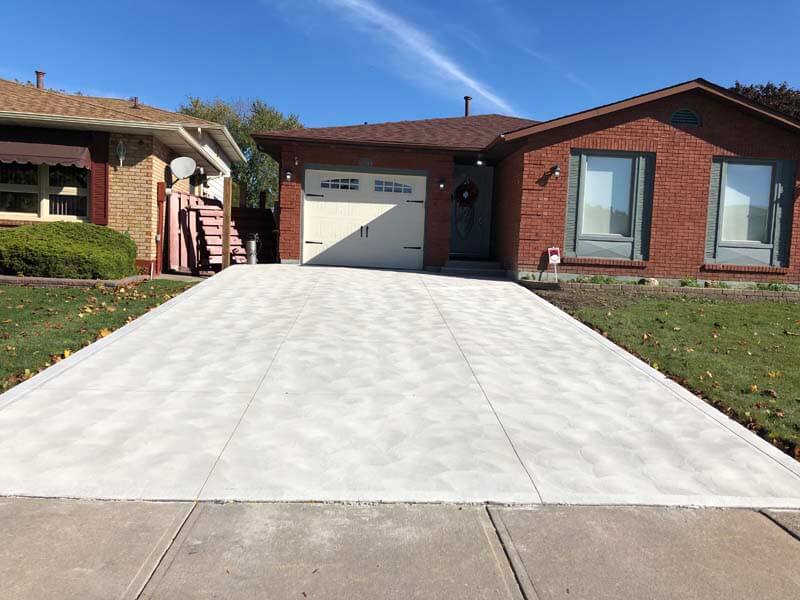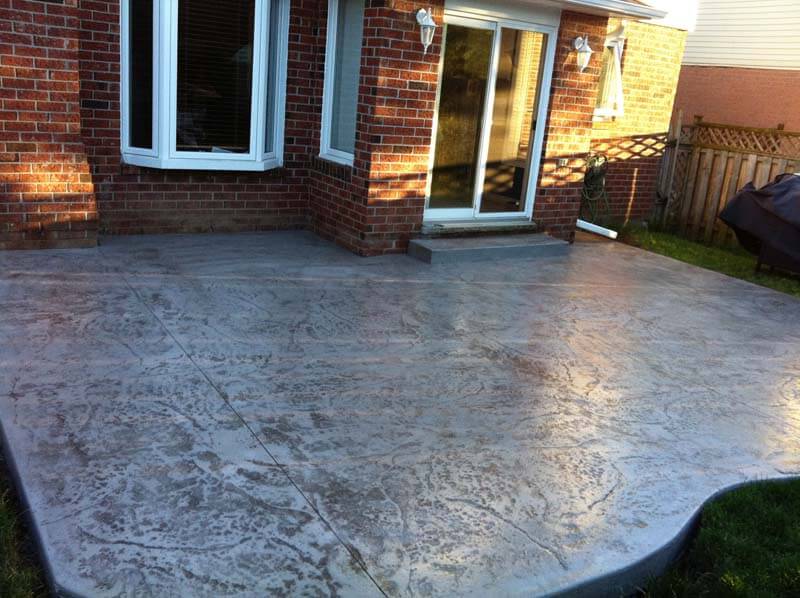Building or renovating with concrete is a significant investment. Whether it’s a new driveway, a beautiful stamped patio, or a durable foundation for a commercial building, you want the final result to be high-quality, long-lasting, and delivered at a fair price. But how do you make sure you’re getting the best deal without compromising on quality? The answer lies in the quote.
A concrete quote is far more than just a number at the bottom of a page. It’s a detailed blueprint of the entire project, from start to finish. A good quote provides clarity, prevents unexpected costs, and builds trust between you and your contractor. A bad one can lead to misunderstandings, delays, and a project that falls short of your expectations. In this guide, we’ll walk you through the essential steps to getting and understanding the best quote for your concrete project right here in Hamilton.
Step 1: Lay the Groundwork – Define Your Project
Before you even pick up the phone, you need a clear vision of your project. The more specific you are, the more accurate the quotes you receive will be. Think of this as your project’s foundation, without it, everything else will be wobbly.
- Know Your Scope: What are you actually building? Is it a new patio? A walkway? A garage floor? A clear project scope is the single most important factor in a reliable quote.
- Measure Everything: Get the dimensions right. For a slab or patio, measure the length and width in feet. Don’t forget to consider the desired thickness. A standard residential driveway might be four inches, but a commercial area that will see heavy truck traffic needs to be much thicker.
- Consider the “Extras”: What kind of finish do you want? Plain broom-finished concrete is a classic, durable choice, but there are other options like decorative stamped concrete, exposed aggregate, or colored concrete. These finishes require specialized techniques and materials, which will impact the cost.
- Think About the Site: Is the area currently a grassy yard, or is there an old concrete slab that needs to be torn out and hauled away? Is the site level, or will it require grading and extensive site preparation? Are there any accessibility issues, like a narrow gate or a remote location? Be ready to discuss these details with every contractor you contact.
Having this information ready allows contractors to provide a quote tailored to your exact needs, making it easier to compare apples to apples.
Step 2: The Search for a Concrete Champion
Finding the right contractor is a crucial step. It’s not just about who’s available; it’s about finding a professional with the right experience and a reputation for quality work.
- Local is Best: Look for contractors who are well-established in the Hamilton area. They’ll have a better understanding of local building codes, soil conditions, and the specific challenges of the climate. They will also be more likely to have a network of local suppliers and references.
- Check Their Credentials: A reliable contractor will be fully licensed and insured. Insurance is especially important, as it protects you from liability in the event of an accident on your property. Don’t hesitate to ask for proof.
- Look for a Portfolio: Ask for examples of past work. A contractor who is proud of their craftsmanship will be happy to show you photos or even provide addresses of completed projects so you can see their work in person.
- Read Reviews and Testimonials: Online reviews on Google, HomeStars, and other platforms can provide valuable insights into a contractor’s communication, professionalism, and quality of work. While a few negative reviews are normal, a pattern of complaints is a major red flag.
By vetting your contractors upfront, you can narrow down your list to a few trusted professionals and ensure you’re getting quotes from credible sources.
Step 3: Deciphering the Quote – What to Look For
Once you have multiple quotes in hand, it’s time to put on your detective hat. Don’t just look at the final number. A low price can sometimes signal corners being cut, which will cost you more in the long run. Instead, focus on the details.
- Itemization is Everything: A professional quote should be broken down into individual line items. This is a sign of transparency and professionalism. Look for separate costs for:
- Labor: The cost of the crew’s time.
- Materials: A breakdown of concrete (by the cubic yard), rebar or mesh, and any special finishes.
- Site Preparation: Costs for excavation, grading, or removing existing material.
- Permits: Are they included, or will you need to handle them?
- Cleanup and Disposal: Will the contractor haul away debris and leave the site tidy?
- The Fine Print: Read every quote carefully. Look for a section on “exclusions” or “assumptions.” This is where a contractor might list things that aren’t included in the price. For example, a quote might assume the ground is perfectly level and charge extra if it isn’t.
- Check the Warranty: A reputable contractor stands behind their work. A written warranty, especially for common issues like cracking or settling, is a sign of confidence and a commitment to quality. Make sure you understand the terms and duration of the warranty.
- Confirm the Concrete Mix: Believe it or not, not all concrete is the same. The strength of concrete is measured in pounds per square inch (PSI). A good quote will specify the PSI of the concrete mix they plan to use. For example, a residential driveway might use a 3500 PSI mix, while a heavy-duty slab might require a 4000 PSI mix or higher. A contractor who is vague about this detail might be using a lower-grade, less durable mix to save money.
- Payment Schedule: A clear payment schedule should be outlined. Be wary of any contractor who demands a large upfront payment. A common practice is a deposit to secure materials, followed by installment payments as the project progresses.
By meticulously comparing these details, you can see past the bottom line and truly assess the value each contractor is offering. A slightly higher quote that includes a comprehensive warranty, higher-grade materials, and all-inclusive site prep is almost always a better value than a cheaper quote that leaves you exposed to unexpected costs.
Step 4: Ask the Right Questions
Don’t be afraid to ask questions. This is your project, and a good contractor will be happy to provide clarity. Use these questions to fill in any gaps in the quotes you’ve received.
- “What is your project timeline, including the start and completion dates?”
- “Can you provide a list of references I can contact?”
- “What measures do you take to protect my property and landscaping during the project?”
- “How do you handle unforeseen issues, such as encountering a hidden utility line or a major weather delay?”
- “What is the process for curing the concrete, and what is the cure time before I can use the surface?”
- “What happens if a major crack appears within the first year? Is that covered by the warranty?”
The way a contractor answers these questions will tell you a lot about their professionalism and their commitment to customer service. A contractor who is evasive or seems annoyed by your questions is likely not the right fit.
Conclusion: Your Project, Done Right
Getting the best quote for your concrete project in Hamilton is a multi-step process that goes beyond a simple price comparison. It’s about thorough research, clear communication, and a keen eye for detail. By defining your project, vetting your contractors, and carefully analyzing their quotes, you can ensure your concrete investment is a success.
You’re not just buying concrete; you’re investing in the durability, functionality, and beauty of your property for years to come. That’s why choosing the right partner is so important.
Ready to get a quote from a trusted Hamilton professional? Contact Mike’s Concrete Ltd. today for a detailed, transparent, and competitive quote on your residential or commercial concrete installation needs. Our team is ready to answer all your questions and help you build a project that will last a lifetime.
FAQs about Getting a Concrete Quote
Q: How is a concrete quote calculated?
A: A concrete quote is typically calculated by combining several key factors: the cost of materials (including the concrete mix itself, reinforcement, and any additives), labor costs (based on the crew size and estimated time), and a markup for the contractor’s overhead, equipment, and profit. The project’s square footage and thickness determine the volume of concrete needed, which is a major component of the material cost. Other variables like site preparation, finishing techniques, and the project’s complexity are also factored in to provide a total cost.
Q: Why do quotes from different contractors vary so much?
A: Quotes can vary significantly because of differences in the factors they include. One contractor might use a higher-grade concrete mix or more robust reinforcement, while another might not. One quote might include all site preparation and cleanup, while another might consider those as separate, added costs. Experience, reputation, and a company’s overhead also play a role in pricing. The cheapest quote is not always the best option; it might signal a lack of insurance, inferior materials, or a less experienced crew.
Q: What is the average cost of a concrete project in Hamilton?
A: The average cost of a concrete project varies widely depending on its size, complexity, and type. For a standard, plain concrete slab, the cost can be estimated on a per-square-foot basis, but this number changes based on the local market and material prices. A decorative stamped patio or an exposed aggregate driveway will be significantly more expensive due to the additional labor, materials, and specialized finishing required. The best way to get an accurate estimate is to get multiple quotes tailored to your specific project details.
Q: What is a “short load” fee and will it be in my quote?
A: A “short load” fee is an extra charge from a concrete supplier for delivering a volume of concrete that is less than a full truckload. This fee compensates for the delivery costs that are not covered by the smaller order. For smaller residential projects that don’t require a full truck of concrete, this fee may be a factor and should be itemized in a transparent quote. A good contractor will include this fee in your quote so you don’t encounter any surprises.
Q: Should I ask for references from past customers?
A: Yes, absolutely. Asking for references is one of the most important steps you can take to vet a concrete contractor. A reputable contractor should be happy to provide you with a list of recent clients you can contact to ask about their experience. In addition to online reviews, speaking to a past customer can give you a better feel for the contractor’s communication, professionalism, and the long-term quality of their work.



